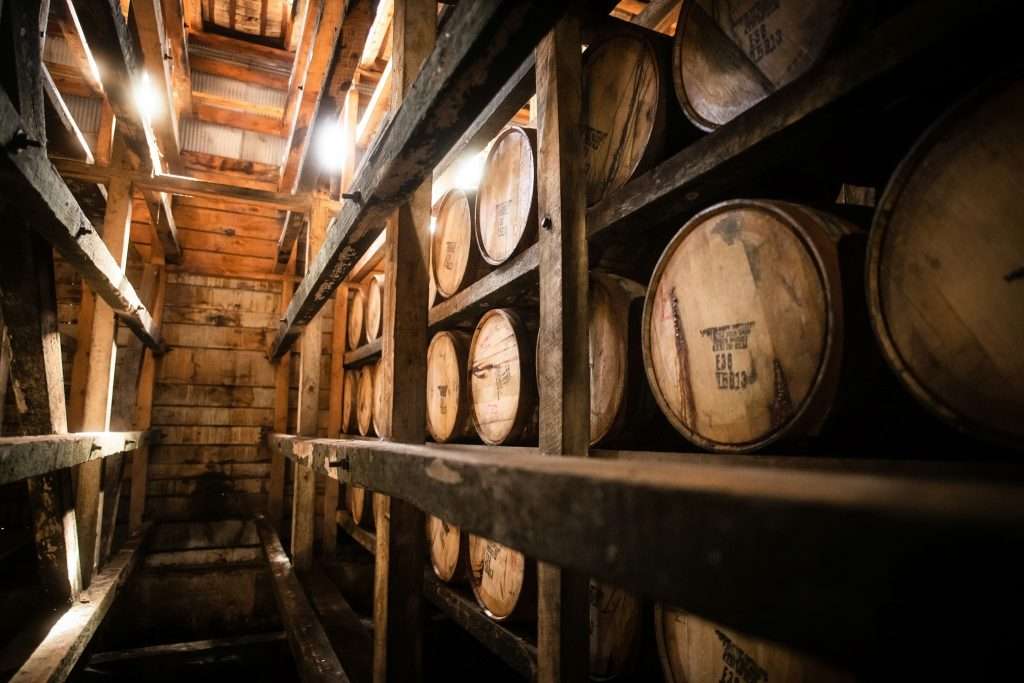Eco bedding leader Coyuchi has debuted the first regenerative cotton bedding, and Maker’s Mark has debuted the first Regenified certified regenerative whisky on Kentucky’s first regenerative farm.
Have a bourbon and a nap both while supporting regenerative agriculture? Go ahead, it’s never been easier.
Maker’s Mark, the Certified B Corp Kentucky bourbon label, has been implementing regenerative farming practices for almost ten years. Today, it announced it has achieved Regenified certification for its 1,100-acre Star Hill Farm, the home of Maker’s Mark Distillery in Loretto, Ky. The announcement makes it the first Regenified certified whiskey in the world and the first regenerative certified farm in the state.
The family-operated bourbon producer says the certification builds on its mission to cultivate bourbon that “betters the world, while crafting the most flavorful product possible.”
‘Bourbon is nature, distilled’
To achieve its regenerative certification, Maker’s Mark has been working with local farmers, wheat-breeding experts, and soil scientists to discover how regenerative farming can improve the flavor of bourbon, as well as create a more sustainable future for the bourbon industry and environment as a whole.

“Regenerative agriculture is leading the way to improve soil health, biodiversity, and ecosystem function while producing high-quality products,” Salar Shemirani, chief executive officer at Regenified, said in a statement. “Maker’s Mark’s commitment to handcrafting the finest bourbon has always prioritized the quality of their ingredients, dating back to their founding 70 years ago, when regenerative agriculture was the only norm. We are thrilled to recognize Maker’s Mark and its homeplace of Star Hill Farm for their ongoing commitment to these practices that are so vital for the health of our planet.”
Maker’s Mark says it’s sharing its regenerative agriculture practices with its grain suppliers with a goal for all of Kentucky’s iconic bourbon to be made fully by regenerative agriculture — practices that give more to the land than they take.
“We are incredibly proud to be the first farm in Kentucky and the first distillery in the world to achieve certification from Regenified,” said Rob Samuels, 8th generation whisky maker and grandson of the founders at Maker’s Mark. “Our ambition to act as a force for good in all that we do includes our commitment to being good stewards of the land and our soil at the homeplace of Maker’s Mark. After all, bourbon is nature, distilled. We know a commitment to the quality of our ingredients through regenerative agriculture can lead to a future where whisky is not only more sustainable, but markedly more flavorful as well.”

Maker’s Mark has long been driven by a deep sense of responsibility to the places, people, and practices instrumental to its award-winning bourbon. Other recent initiatives from the B Corp-certified brand include the establishment of the world’s largest repository of American White Oak trees for research purposes and a first-of-its-kind genome mapping project of the American White Oak species, and the establishment of a 33-acre Natural Water Sanctuary on its distillery grounds to preserve and protect the land that filters its water source now and in the future.
Regenerative cotton bedding
The news comes as California-based bedding company Coyuchi achieved another regenerative first. The label, which is already leading the charge in sustainable home goods as a founding member of the California Cotton & Climate Coalition (C4), recently released its Climate Beneficial Cotton duvet insert and soft-washed sheets collections, marking the first locally grown regenerative cotton home goods in the industry. The new products feature fibers in their natural, unaltered state.
According to Coyuchi, the journey to producing regenerative household goods started with its promise to use transparent organic sourcing practices, leading to the formation of C4 in 2020. The coalition comprises like-minded parties such as farmers, merchants, researchers, and textile mills, all working together to make regenerative cotton more accessible for brands and increase production possibilities for farmers. C4’s mission is to improve biological life in the soil of irrigated croplands, leading to improved soil structure, natural fertility, and carbon drawdown for the greater good of the planet.

Regenerative crops are grown via farming practices that prioritize soil health and biodiversity. This approach aims to go beyond sustainability by actively restoring and improving the ecological health of farmland. Regenerative cotton farmers use practices such as crop rotation, cover cropping, and reduced tillage, to improve soil fertility and structure, sequester carbon, and reduce water usage. By promoting soil health, regenerative cotton farming can also help to mitigate climate change by removing carbon from the atmosphere and improving the resilience of farmland to extreme weather events.
Regenerative agriculture is gaining steam across a number of sectors including use in food, beverage, and beauty products. It’s also made its debut in the fashion world with brands including Patagonia, CO, Kering Group, and others, embracing the practice.
Coyuchi’s focus on regenerative cotton and its partnership with C4 aims to rebuild the carbon and biology of the soil, increasing drought resilience, reducing erosion, and generating measurable benefits towards climate stabilization. The brand’s commitment to sustainability extends to its entire product line. The new Climate Beneficial collection focuses on creating a premium product that showcases the high-quality fibers of California-grown cotton, the company says. “This is an opportunity for us to provide the highest quality cotton that California is known for to our customers,” said Coyuchi CEO Eileen Mockus, “and this is just the beginning.”
Related on Ethos:


